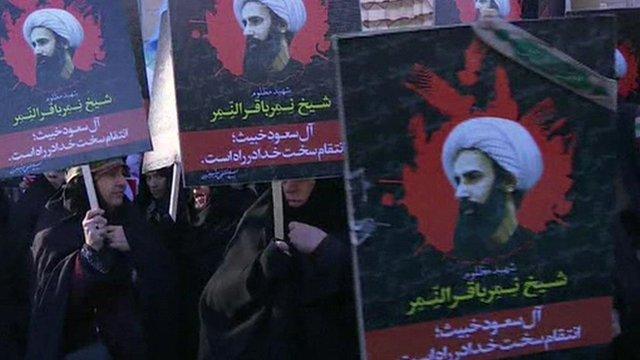Iran-Saudi Arabia row: War of words as ties severed
- Published
- comments
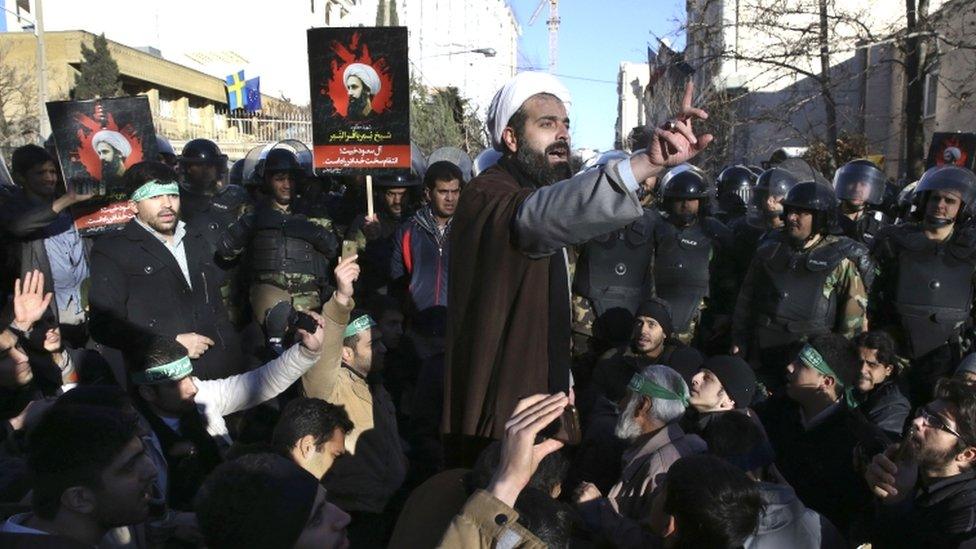
A cleric outside the Saudi embassy in Tehran denounces Sheikh Nimr's execution
Iran has accused Saudi Arabia of pursuing confrontation and stoking regional tension, after the Saudis broke off diplomatic relations.
Saudi Arabia gave Iranian diplomats two days to leave amid a row over the Saudi execution of a top Shia Muslim cleric.
Saudi Arabia and Iran are the key Sunni and Shia powers in the region and back opposing sides in Syria and Yemen.
There are fears sectarian strife may spread. On Monday, two Sunni mosques in Iraq were bombed and an imam killed.
Iran-Saudi crisis 'most dangerous for decades'
Sunnis and Shia: Islam's ancient schism
Sheikh Nimr al-Nimr: Leading Saudi Shia cleric
Sheikh Nimr al-Nimr and 46 others were executed in Saudi Arabia on Saturday after being convicted of terror-related offences.
Saudi Arabia announced late on Sunday it was severing diplomatic relations with Iran after demonstrators stormed the Saudi embassy in Tehran. It gave Iranian diplomats 48 hours to leave.
It also recalled its diplomats from Tehran.
Iran's foreign ministry on Monday accused the Saudis of "continuing the policy of increasing tension and clashes in the region".
Ministry spokesman Hossein Jaber Ansari said: "Saudi Arabia sees not only its interests but also its existence in pursuing crises and confrontations and attempts to resolve its internal problems by exporting them to the outside."

Analysis: Lyse Doucet, BBC chief international correspondent
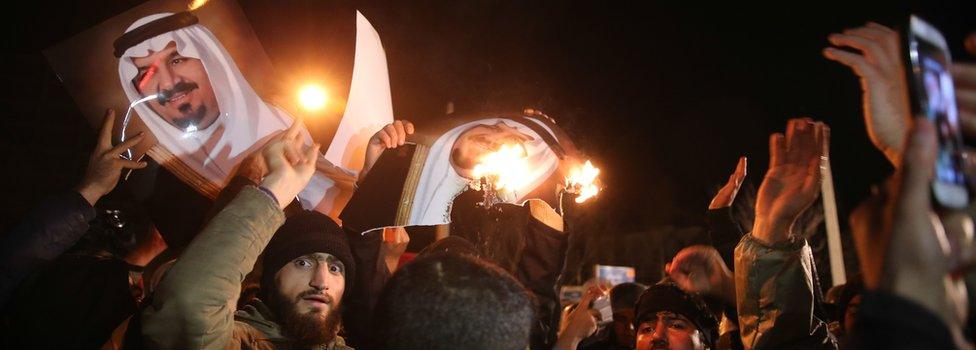
A diplomatic rupture between the major Sunni and Shia powers in the region will resonate across the Middle East, where they back opposing sides in many destructive wars and simmering conflicts.
Players are already lining up along sectarian lines to support either Tehran or Riyadh.
Last year had ended with a bit of hope that talks on ending Yemen's strife had, at least, begun. Syria was to follow this month. It looks an awful lot harder now.
In October Saudi sources told me they only dropped their opposition to Iran's presence at Syria talks after the US persuaded them to test Tehran's commitment. But they doubt Iran will do a deal, and see it as key source of regional instability.
On the other side, Iranian officials don't hide their contempt for the Saudi system and its support for Islamist groups. There's been barely-concealed anger for months. Now it's boiled over.

He defended Iran's response to the embassy attack, saying it had "acted in accordance with its obligations to control the broad wave of popular emotion". Fifty arrests were made.
Iran's first vice president, Eshaq Jahangiri, said it would be Saudi Arabia that lost out by severing ties, accusing it of "hasty and illogical actions".
But in announcing the cut in ties, Saudi Foreign Minister Adel al-Jubeir said Saudi Arabia would not let Iran undermine its security, accusing it of having "distributed weapons and planted terrorist cells in the region".
"Iran's history is full of negative interference and hostility in Arab issues, and it is always accompanied by destruction," he told a news conference.
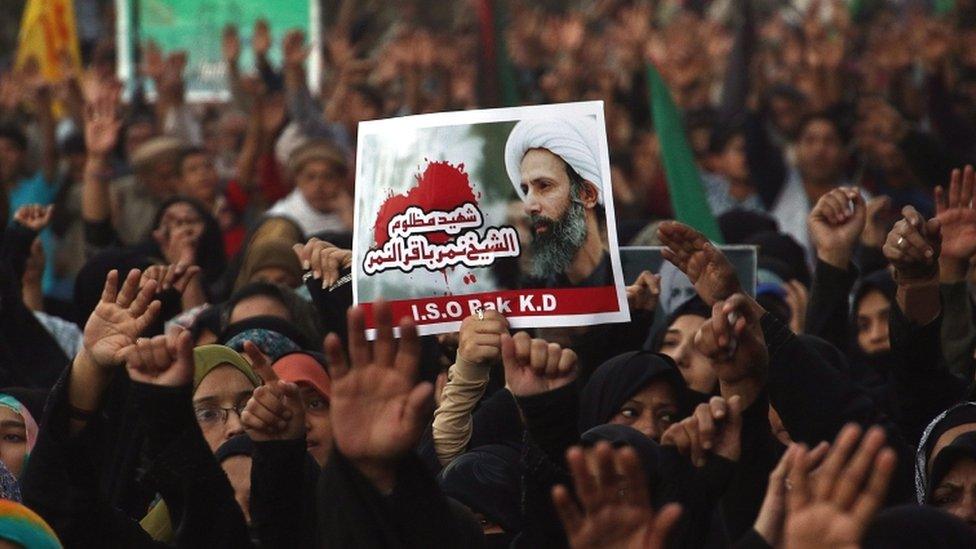
The execution led to protests elsewhere, as here in Karachi, Pakistan
The US has appealed for calm, calling for continued diplomatic engagement.
But the execution also led to protests in Iraq, Bahrain and several other countries, sparking fears of spreading sectarian strife.
Bomb blasts rocked two Sunni mosques in and around Hilla, 80km (50 miles) south of the Iraqi capital, Baghdad, on Monday.
It is unclear who was behind the attacks, but a senior police source in Babylon province told the BBC they were believed to be members of Shia militias. A muezzin of one of the mosques was killed.
A Sunni imam of a mosque in Alexandria, north of Babylon, was killed by gunmen in another incident, the source said.
In Saudi Arabia late on Sunday, police came under heavy gunfire in Sheikh Nimr's home town of Awamiya in Eastern Province, leaving one civilian dead and a child injured, the Saudi Press Agency said.
Security forces are still hunting the attackers, calling the incident a "terrorist" act, a police spokesman was quoted as saying.
Arab Spring
Relations between Iran and Saudi Arabia have been strained over various issues in recent decades, including Iran's nuclear programme and deaths of Iranians at the Hajj pilgrimage in 1987 and again in 2015.
Diplomatic ties were severed between 1988 and 1991.
Most of the 47 people executed by Saudi Arabia were Sunnis convicted of involvement in al-Qaeda-linked terror attacks over the past decade.
Sheikh Nimr was involved in anti-government protests that erupted in Saudi Arabia in the wake of the Arab Spring, up to his arrest in 2012.
Mansour al-Kafari, a spokesman for the Saudi ministry of justice told the BBC on Monday its courts were there to apply Sharia laws irrespective of other influences.
"The judges deal with the facts in front of them," he said.

Who was Sheikh Nimr al-Nimr?
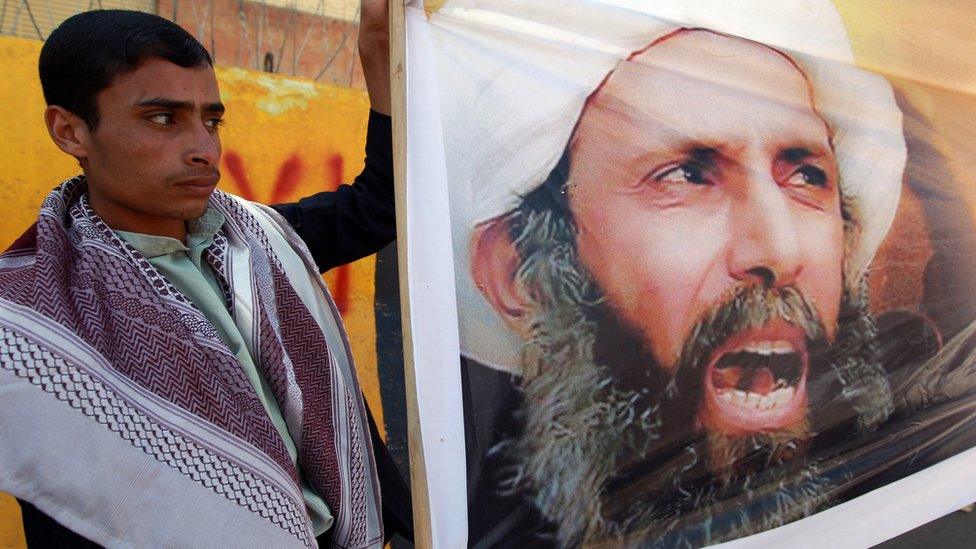
News of Sheikh Nimr's execution prompted an angry response from Shias across the region
In his 50s when he was executed, he has been a persistent critic of Saudi Arabia's Sunni royal family
Arrested several times over the past decade, alleging he was beaten by Saudi secret police during one detention
Met US officials in 2008, Wikileaks revealed, external, seeking to distance himself from anti-American and pro-Iranian statements
Said to have a particularly strong following among Saudi Shia youth

- Published2 January 2016
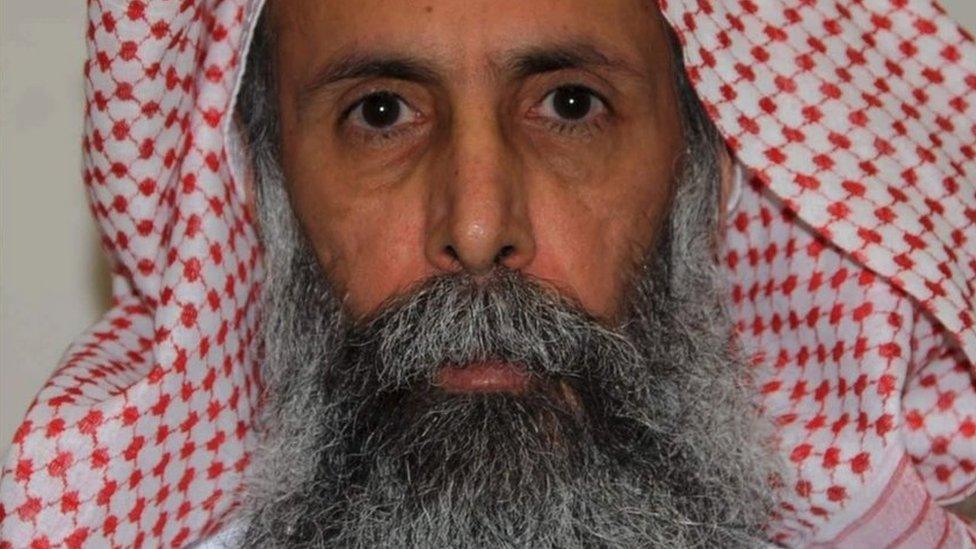
- Published4 January 2016
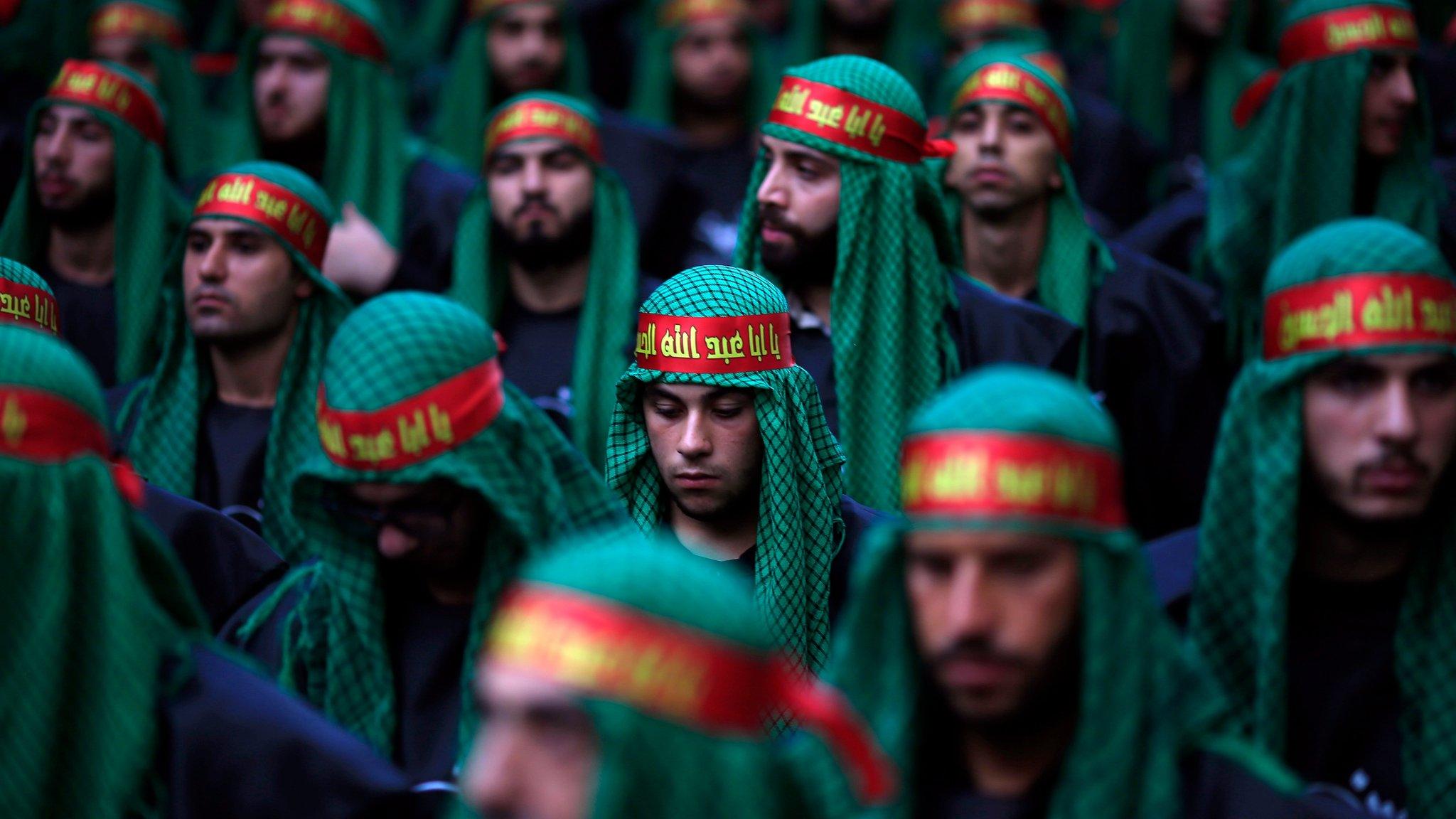
- Published4 January 2016
